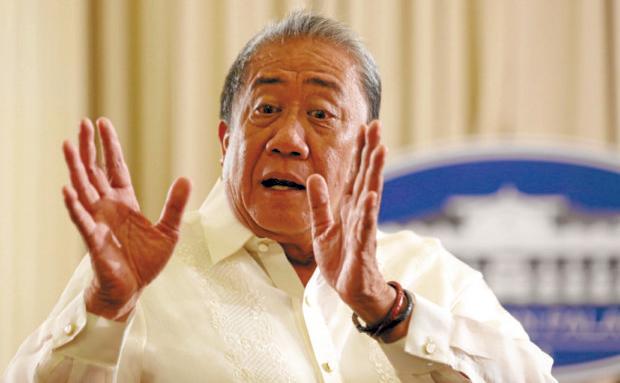Bulacan airport work to begin before 2019 ends – DOTr

Transportation Secretary Arthur Tugade during a press briefing at Malacañang’s Kalayaan Hall, July 18, 2017. (File photo by JOAN BONDOC / Philippine Daily Inquirer)
MANILA, Philippines — The construction of the Bulacan airport will start before the end of 2019, the Department of Transportation (DOTr) said Wednesday.
The DOTr made the announcement after it concluded the Swiss Challenge for the unsolicited proposal of San Miguel Holdings Corp. (SMHC).
During the opening of bids, no rivals challenged the original proponent for the construction, operation. and maintenance of the international airport.
The new airport is expected to be operational within four to six years from the start of construction, the DOTr said.
SMHC is expected to break ground and start the project before the end of the year.
Article continues after this advertisementThe airport will have a capacity of 100 million passengers per year, but it can be expanded to 200 million. It aims to accommodate 240 aircraft movements per hour as four parallel runaways are planned to be constructed.
Article continues after this advertisementThe project will also include the construction of an 8.4-kilometer tollway that will connect the airport to the North Luzon Expressway (NLEX) in Marilao, Bulacan.
Giovanni Lopez, DOTr assistant secretary for procurement and project implementation, said the notice of award to SMHC would be issued after a recommendation from the technical working group had been made within three days.
“On the notice of award, there are some conditions that should be complied with,” Lopez said in a statement. “These include post-performance security, proof of commitment, among others as stated in the law. They (SMHC) have 20 days to do so.”
SMHC will be in charge of the financing, design, construction, operation and maintenance of the Bulacan airport.
Transport Secretary Arthur Tugade said the Bulacan airport would help ease congestion at the Ninoy Aquino International Airport.
“Together with the expansion of Clark Airport and the construction of additional facilities at Sangley Airport, Bulacan Airport is part of ‘baskets of solutions’ to bring further connectivity to the Filipino people,” Tugade said.
/atm